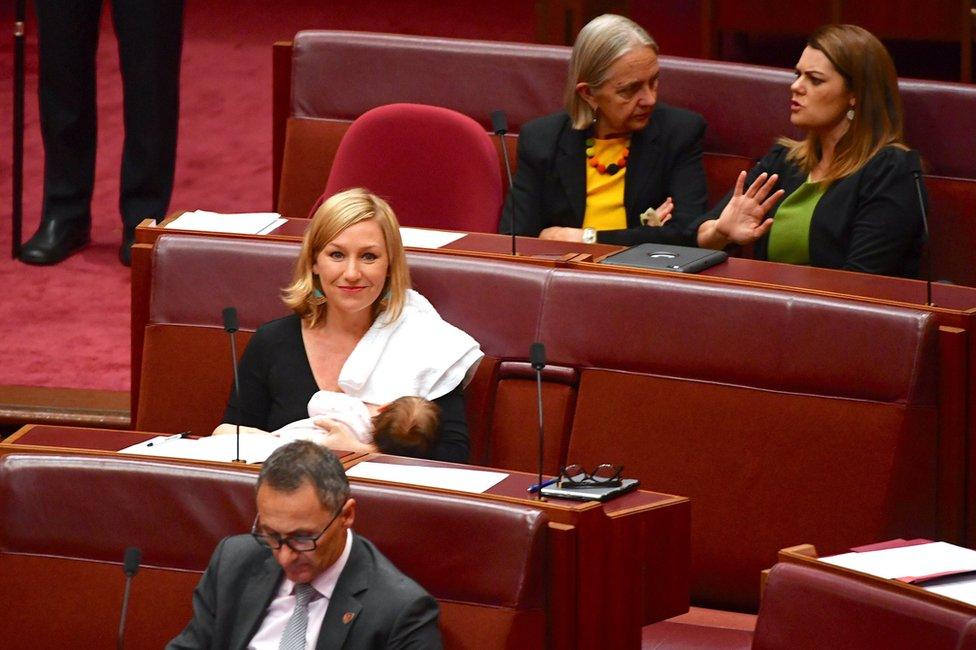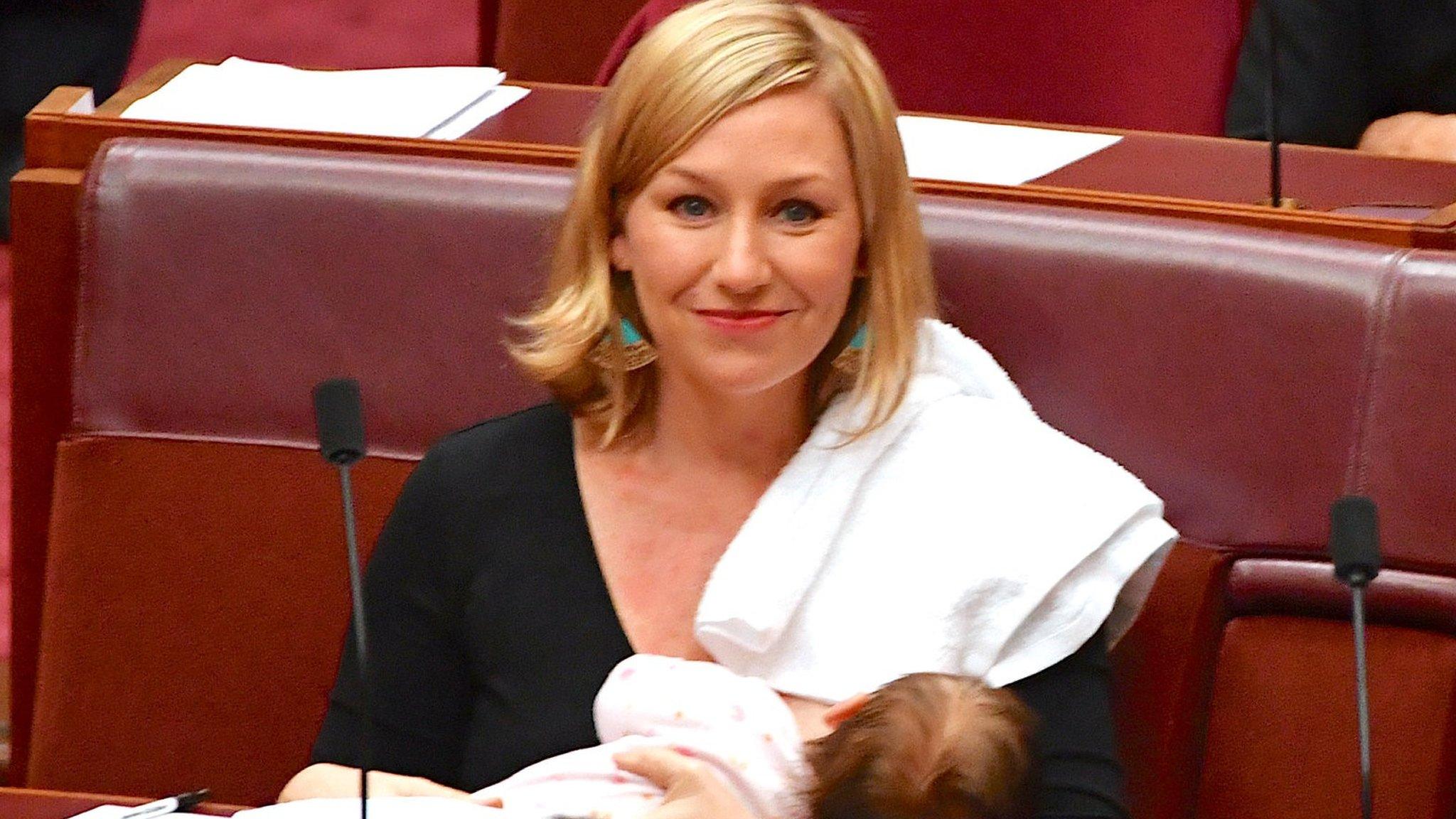Breastfeeding at work: Women's stories
- Published

Australian Senator Larissa Waters with her daughter, Alia Joy
This week, Senator Larissa Waters became the first Australian politician to breastfeed in parliament. But can women really breastfeed at work?
Dr BJ Epstein, a senior lecturer at the University of East Anglia, started bringing her daughter Esther to her office when she was 14 months old.
"Initially, I was really stressed about returning to work, as breastfeeding was an important part of our relationship," she says.
"But luckily I have been really well supported. She comes with me to work three days a week before nursery and breastfeeds - but I do have a private office.
"I am aware my situation is quite unusual. It's been nothing but a positive experience."
But does it interfere with BJ's work?
"I don't find it distracting having my daughter in my office," she says.
"She sits on my lap and breastfeeds while I work, or she draws, or plays with toys, and I get a lot done.
"I actually get more done with her here than I do later in the day. More people knock on my door later in the day!"

Dr BJ Epstein (right) and her wife Fi
Esther, who is now two and a half, also travels with her mum to academic conferences, allowing BJ to breastfeed her daughter before and after her talks - although not during.
"Again, I know I'm lucky that my wife is a bit flexible (she works part-time) and can come with me," says BJ.
"I think having a child and being able to breastfeed her at work and in work situations has made me a better employee.
"It's a cliché, but I feel I know what's important now, and I know how to prioritise."
While BJ's situation is rare, it's more common for women who work near home or nursery to breastfeed their child during a break.
But one woman, who wishes to remain anonymous, found she had to battle her employer to be allowed to do this.
"I had chosen to feed my youngest rather than express at work during my allotted break," she says.
"I was given some grief about it. I was told that I couldn't feed him on the premises and my break was set aside to express and express only.
"It ended up being resolved once I contacted my HR department, and I was allowed to have him on site to feed him during that break for about three months.
"I had to explain that feeding a baby is quicker and more efficient than expressing so was better for everyone's interests."
What are your rights?
Bringing your baby to work is not common, but many new mothers do need to be able to express and store their breast milk in the office.
Employers in the UK are not explicitly obliged by law to accommodate women who are breastfeeding, unlike - for example - the United States.
There, businesses must give women reasonable time off, external to express milk, as well as providing facilities.
The charity Maternity Action has released a manifesto ahead of the UK general election asking for the next government to introduce a full legal right to breastfeed in the workplace.
Rosalind Bragg, director of Maternity Action, says: "It's very disappointing this hasn't been addressed. It's important for all women to have the choice about how they breastfeed their babies."
Currently, the only requirement for employers is to conduct a risk assessment if a mother gives them written notification that she is breastfeeding.
The employer must consider the risks and "take reasonable action" - including, for example, adjusting the hours of work, external.
The Health and Safety Executive provides a list of recommendations of support employers should provide.
Seamus Nevin, head of employment and skills at the Institute of Directors, says companies are starting to recognise the advantages of having flexible attitudes.
"Adjusting workplaces for mothers has clear business benefits - increasing loyalty among female staff and consequently reducing recruitment and training costs for employers," he says.
"Where possible, employers should have a policy to support breastfeeding."
- Published10 May 2017

- Published12 February 2017

- Published10 February 2017

- Published29 January 2016
